David Stairs
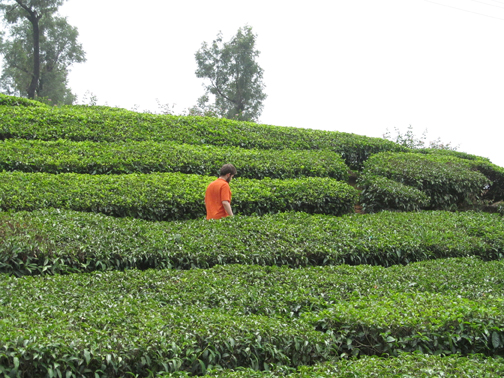
In the tea shambas of the Kanan Devan Hills Company, Munnar
When it comes to tea, the Indian place names roll off one’s tongue: Assam, Darjeerling, Ceylon. Tea is grown in many other places, but it is in India that it became a world-class cash crop, under the avaricious guidance of 19th century English businessmen.
Several locations of India have the required cool temperatures and rainfall patterns to be perfect for raising tea. The northeast Himalayan foothills of Assam is one such place, and the Western Ghats of Kerala is another.
In Munnar, east of Cochin, tea was first planted in the 1870s. These beautiful green mist-covered plantations are a perfect setting for tea trees. Tea is a hardy, long maturing deciduous shrub that is well suited to hilly terrain. But it needs to be carefully pruned and maintained.
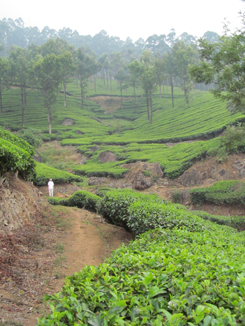
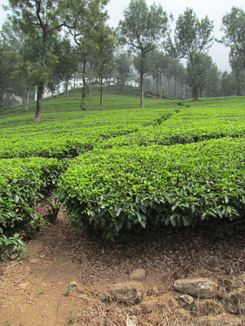
The Kanan Devan Hills Plantations Company, an employee owned operation, is the current parent of the seven plantations surrounding Munnar, and runs a small tea museum and sample production facility in Munnar town. When India gained independence in 1947 the government required Indian buy-in to British businesses. The plantations in Munnar were first owned by a consortium of British owners and the Tata family. Eventually the British sold out and, in 2005, so did Tata.
The production of tea is labor intensive. First, the young leaves must be picked by hand at just the right moment. This enables the shrub to keep growing and producing for many years, but is time consuming and requires skill.
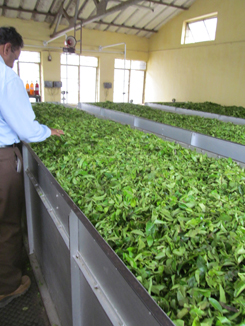
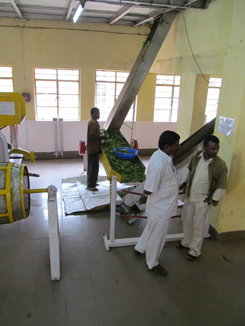
Aerating tea leaves, left, and the chute to the cutter, right
The processing is a multi-step, beginning with aeration. The tea leaves are placed in wire racks and warm air is blown on them from below. Then they are run through a series of cutters that macerate the leaves into smaller and finer grades.
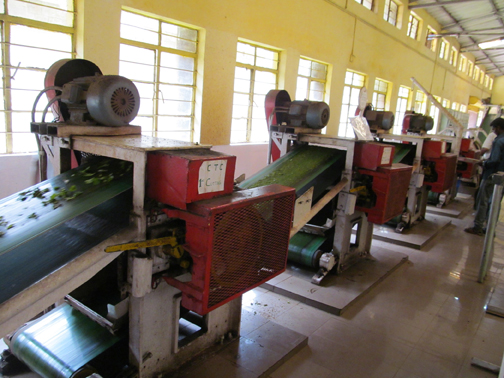
Four-stage tea cutter
After about four stages of cutting the tea is sent through a dryer. Finally, upon leaving the dryer, the tea is sorted, graded, and bagged. A final step packages the different grades of tea for retail distribution.
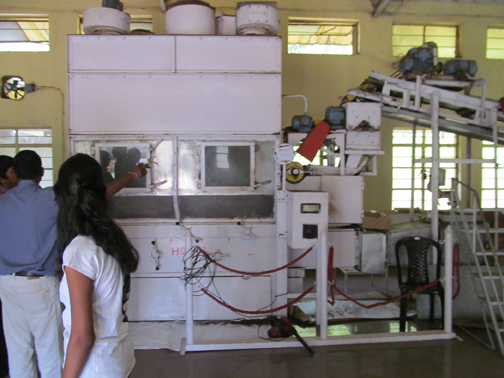
Tea dryer
Kanan Devan Hills employs about 12,000 people, and is dedicated to socially responsible business success. The company encourages self-help groups for women, provides primary education to children of employees, and operates medical clinics for local communities.
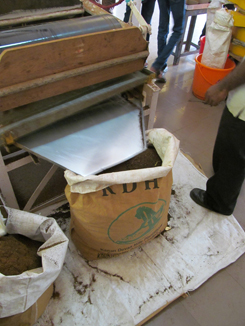
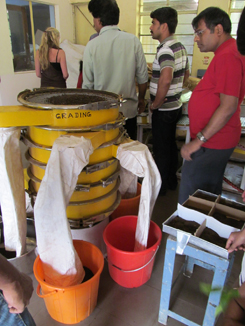
Sorter at left, grader on right
Tea has been a tradition in Munnar since before the British hauled the first steam jenny up over the ghats by oxcart. Nice to know one’s morning “cuppa” is being harvested and processed cooperatively by a collective of contented workers.
David Stairs is the founding editor of Design-Altruism-Project











Leave a Reply
You must be logged in to post a comment.